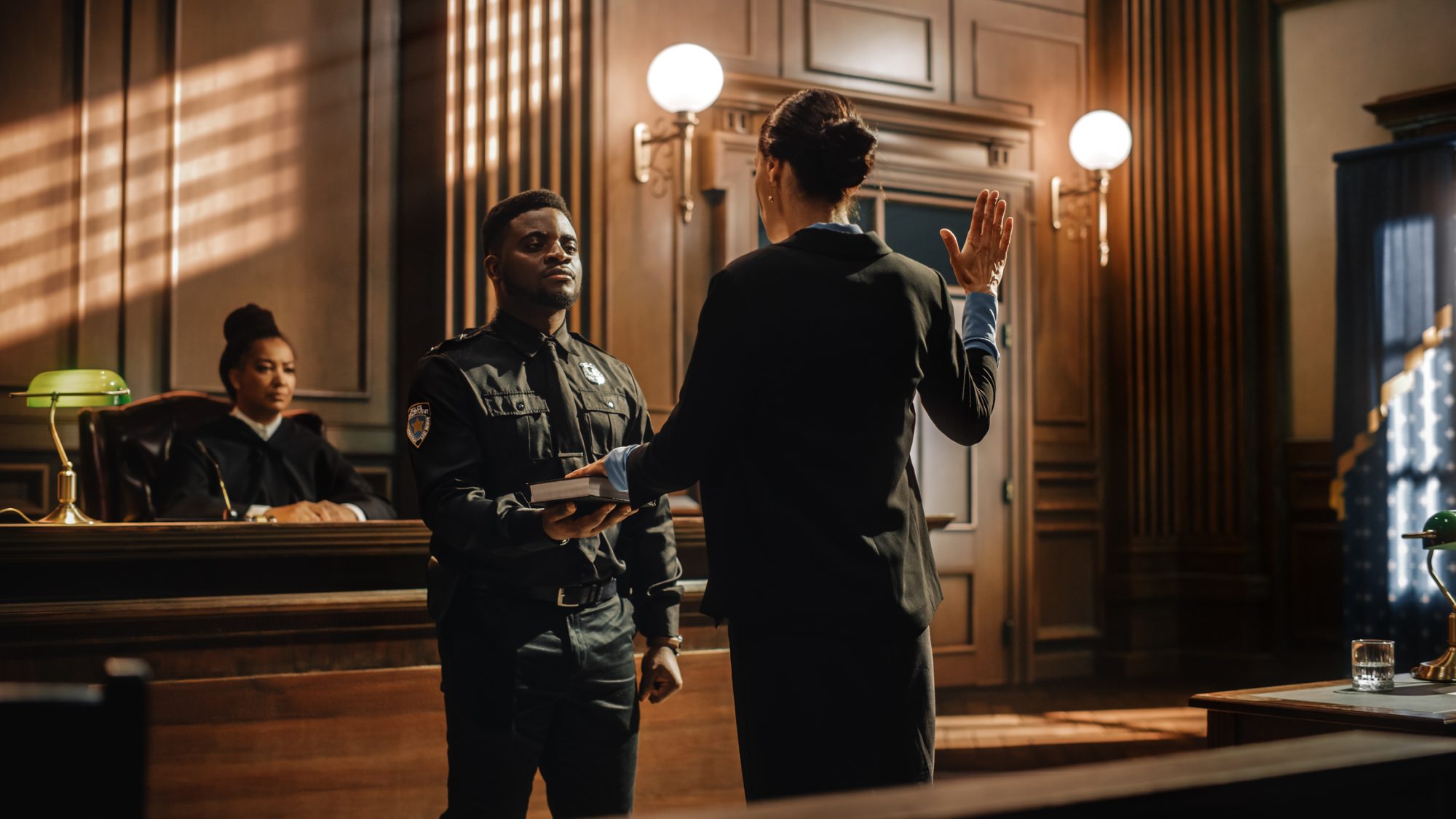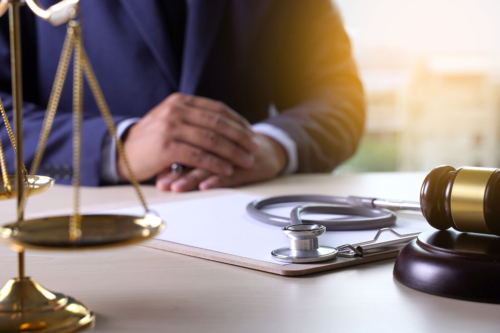
When seeking compensation for an Uber accident caused by another person’s negligence, you might wonder: will I have to testify in court?
A Mobile, AL, Uber accident settlement can be a vital solution to the losses and injuries you’ve suffered, and being prepared can help you obtain a successful outcome. For this reason, we will look into when and why you may be asked to testify, what to expect if you do need to share your testimony, and how to prepare for your day in court.
Get Your Free Case Review 24/7
Why Most Cases Don’t Go To Court
Most Uber accident cases are resolved without going to court because litigation can be time-consuming and expensive for everyone involved. It’s often possible to demonstrate the compensation deserved without a trial, using evidence like medical records, income statements, and expert testimony. In fact, according to findings from the Bureau of Justice Statistics, only about 3% of personal injury cases are settled through a trial verdict. However, if negotiations fail to yield a fair settlement, a court case may become necessary.
Reasons You May Need To Testify
In a perfect world, you would receive your Mobile, AL, Uber accident settlement without the need for a court appearance. However, in reality, there are several scenarios where your case might end up in court, and you may be called upon to testify:
Dispute Over Liability
One of the most common reasons for a case going to trial is a dispute over who was at fault for the accident. In such cases, your testimony can provide a firsthand account of the accident, offering valuable insights into the event that can help establish negligence on the part of the responsible driver.
Questioning the Extent of Your Injuries
Another situation where you might have to testify is when the severity of your injuries is being questioned. The opposing side may argue that your injuries are not as severe as you claim or that they were pre-existing and not caused by the accident. In these instances, your testimony, along with medical records, expert witnesses, and sound legal advocacy can help validate your claims about your injuries.
Discrepancies About Compensation Amount
Finally, you may be asked to testify if there’s a disagreement about the amount of compensation you’re seeking. You might need to justify certain damages you are claiming, such as those related to pain and suffering, loss of enjoyment of life, or future medical expenses. Your testimony can offer a personal perspective on how the accident has affected your life.
How Your Testimony Could Help Your Case
In any legal proceeding, including cases related to Uber accidents, testimony serves as a substantial form of evidence. When you testify, your account is scrutinized by the jury for its credibility and relevance, helping them understand the circumstances surrounding the incident. As someone directly involved in the lawsuit, the details you provide through your testimony are highly pertinent.
Your firsthand account sheds light on how your life has been affected post-accident. This can be a compelling component of your claim, offering insight into the physical pain, emotional distress, and financial burden you’ve endured. In essence, your narrative can serve as a tool in substantiating your claim and securing your settlement.
Does Being Deposed Mean You’ll Have To Testify?
A deposition is a pre-trial process that takes place in a more informal setting than a courtroom, usually at an attorney’s office. During this process, you’re asked questions by the opposing counsel while under oath, and your answers are recorded by a court reporter. This allows both sides to uncover facts, evaluate the strength of their case, and prepare their strategies.
Being deposed doesn’t necessarily mean you’ll have to testify, but if negotiations fail and your case does go to trial, there’s a chance you may have to give testimony in court. In this situation, your court testimony must align with what you said during the deposition. Discrepancies could be used by the opposing side to challenge your credibility of your account.
What To Expect If You Have To Testify
- Preparation with Your Attorney: Before you testify, your attorney will spend time preparing you. This includes reviewing the facts of the case, discussing potential questions, and providing guidance on how best to answer. They will also advise you on court etiquette, how to dress appropriately, and how to manage any nerves or emotions.
- Swearing In: At the beginning of your testimony, you’ll be asked to swear an oath to tell the truth. Perjury (lying under oath) is a serious offense.
- Direct Examination: Your attorney will ask you questions first. This is known as direct examination. The questions are typically designed to let you tell your story and present your side of the case.
- Cross-examination: After your attorney has finished questioning you, the opposing attorney will have the opportunity to cross-examine you. Their questions might be challenging and designed to cast doubt on your testimony. Stay calm, take your time, and answer each question honestly.
- Use of Evidence: During your testimony, attorneys may present evidence such as documents, photos, or medical records. You may be asked questions about these items.
- Redirect and Recross: After the cross-examination, your attorney may ask you additional questions to clarify or counter anything brought up during the cross-examination. The opposing attorney may then do the same.
- Courtroom Formalities: Throughout the process, you’ll need to adhere to courtroom rules and formalities. This includes standing when the judge enters and exits, speaking clearly, and addressing the judge as “Your Honor.”
A Mobile Uber Injury Attorney Will Help You Prepare
At Long & Long, we understand the stress that comes with legal proceedings and are committed to helping our clients feel confident and prepared.

- Preparing You Through Mock Questions
One of the ways we prepare you for testimony is by conducting a mock deposition or trial. It’s not about rehearsing a script, but becoming comfortable with the process and understanding how to present your experiences in a clear, concise manner.
- Guiding You On Responding Techniques
Just as important as what you say is how and when you say it. For instance, we’ll guide you on taking a moment to think before answering a question, speaking clearly and slowly, and sticking to the facts. We’ll also advise you on how to handle difficult or unexpected questions.
- Advising on Courtroom Etiquette
Courtrooms have their own set of rules and protocols, which can be overwhelming if you’re unfamiliar with them. From what to wear to how to address the judge, we’ll walk you through every aspect of courtroom etiquette.
- Providing Emotional Support
Testifying can be emotionally challenging. We don’t just prepare you for the legal aspects of testifying, we also provide emotional support. We understand the impact this process can have on your well-being, and we’re here to help you navigate it with as much ease as possible.
Our goal is to make you confident and comfortable with the process. We’re here for you every step of the way, guiding you through each stage of your Mobile, AL, Uber accident settlement. If you’re looking for answers after a rideshare accident, call us for your free case review and get the help you deserve.







